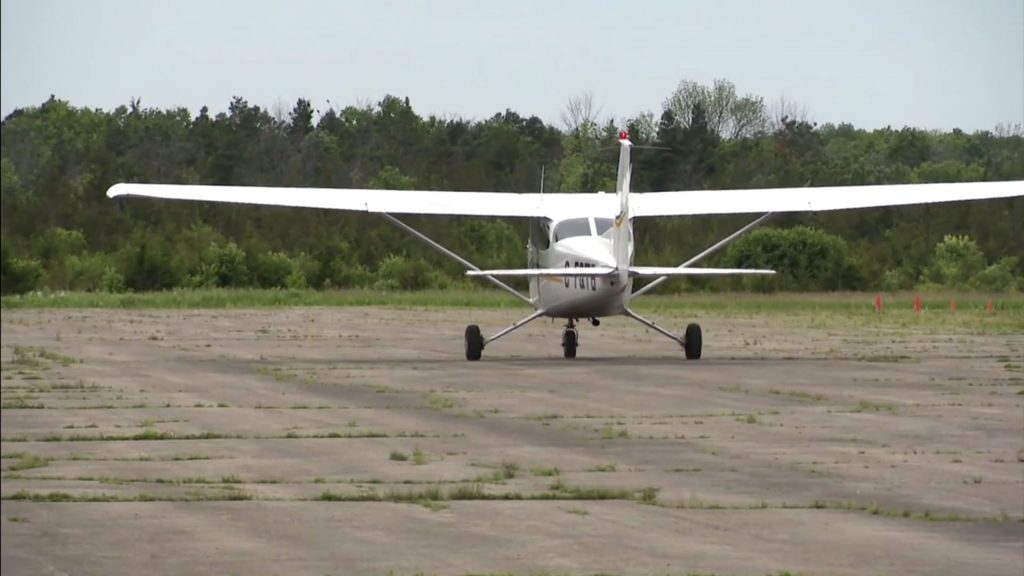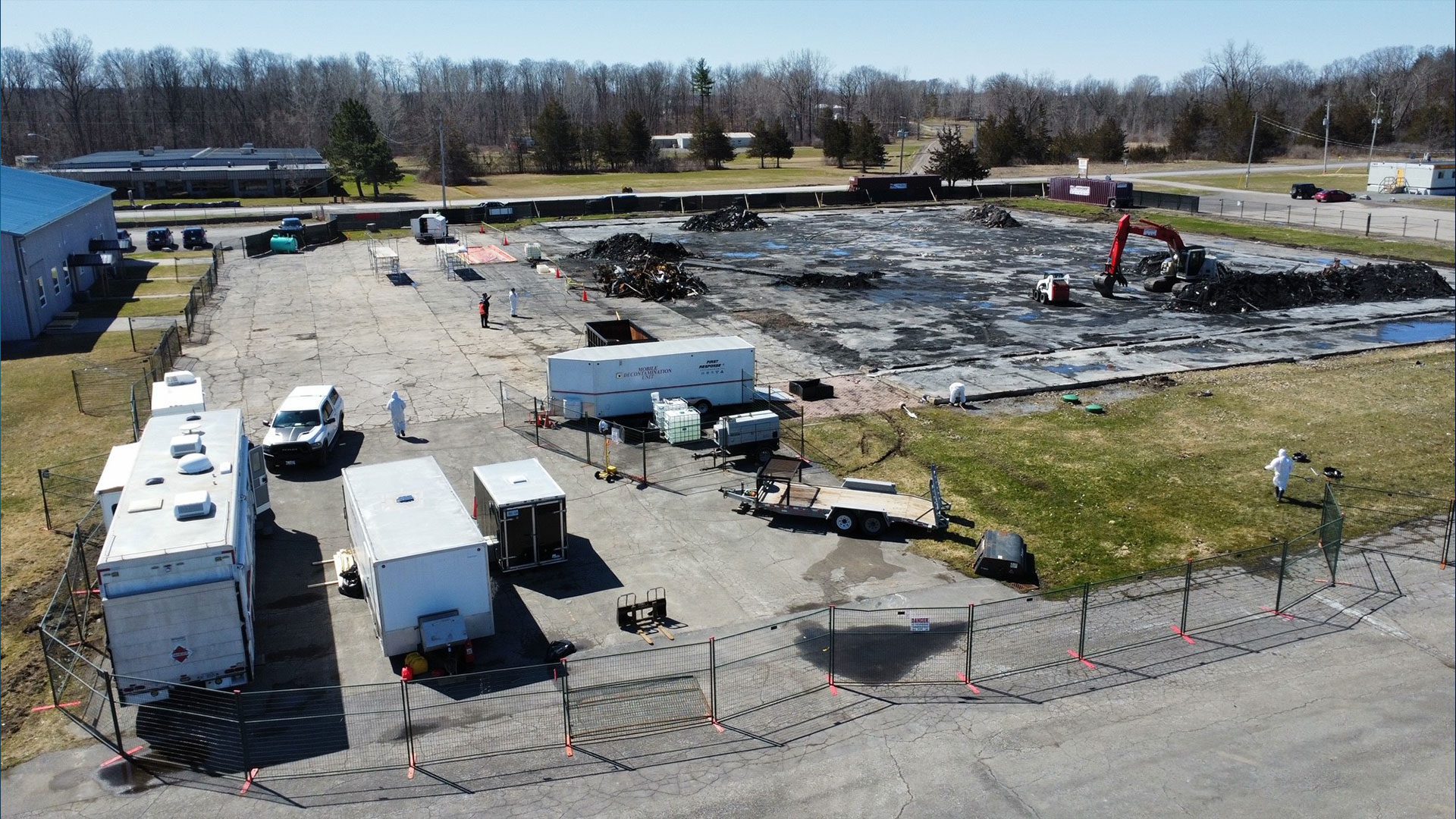
The skies around the Tyendinaga flight school are a little busier these days, at least Monday to Saturday.
Students enrolled in the First Nations Technical Institute’s (FNTI) aviation program are flying six days a week, day and night to catch up on their training hours.
It’s a one-of-a-kind, college-accredited program that is geared to First Nations, Inuit and Métis students.
That’s what drew Joseph Akuljuk so far from his home in Pangnirtung, NU, three years ago to the Mohawk community near Belleville, Ont.
He told APTN News he always knew he wanted to be a pilot, “so I searched Indigenous flight school and FNTI came up, and I applied.”

In February, a fire at the airport’s 79-year-old hangar almost brought an end to the training.
Jo-Anne Tabobandung is the dean of the aviation program and started her own flight career in the same program back in 1990.
“We lost everything,” she said. “We’ve been building this program for 30 years and then suddenly in 17 minutes, the largest part of our program was gone: the World War Two hangar, our maintenance organization, 13 aircraft – five of which were brand new – and our dispatch. Everything was gone, so moving forward was a difficult task, to know where to start.
“Generations of pilots that trained here not only for us, but during the war, our elders had a condolence ceremony and that helped us move forward. We accepted that and then we’re able to move forward with a good mind.”
They did move on. The school came up with a plan and with support, they were able to keep going.
“We were able to secure three leases of aircraft, two of which came from Seneca College, who were one of the first to reach out to say, ‘Hey how can we help, what can we do?’ We said, ‘We needed airplanes’ and so we were able to lease two aircraft from Seneca and one from an old FNTI friend of ours.”
The school managed to get support for the new students that were scheduled to start the program in May as well.
The aviation industry reached out, too.
“We have a really great reputation and relationships with a lot of airlines, they wanted to know how to support us, so they are now supporting 13 students to flight train near their communities this summer,” she said.

Akuljuk’s thankful he is able to continue with FNTI’s program.
He’s already earned his commercial pilot’s license and needs a few more things before he graduates in a few months.
“When I do finish, I want to go back home to (the airline) Canadian North. I want to be communicating with them soon for when I get back home. I want to make my family proud and fly them in the planes there,” he said.
Tessie Chinna will graduate this fall.
She said it’s been delayed a bit due to the fire but having one day off isn’t so bad.
“I’m from the Northwest Territories, so you meet a lot of pilots, and no pilots ever hate their jobs, so it intrigued me,” she said.
According to FNTI president, Suzanne Brant, there’s a 100 per cent employment success rate for graduates of the program.
“Some enter into actually commercial flying, so they can go into the commercial industry and others, you know, go back into other kinds of positions that need pilots, some agent orange work, so medevac, others are flying in and out of communities,” she said.
Remediation of the burn site is expected to be complete soon, the next step will be to construct a facility to house the leased planes.
Brant said it will take time before they can replace the five new planes.
“It’s not like a car, where you can go to the car lot and purchase a car – we have to order them, and it takes them a year to build them and have them ready for us”
She said 10 new students will begin the program in September online and 50 more are on a waiting list for the popular program.










